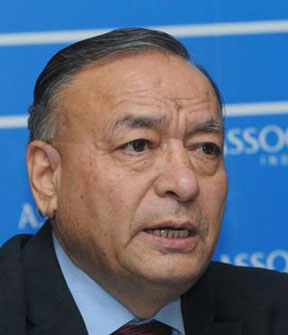
NEW DELHI: India’s biotechnology sector is likely to touch USD 7 billion mark by end of the current fiscal with an average growth rate of about 20 per cent, according to a study by Assocham.
The country’s biotechnology sector is divided into five segments based on the products and services offered bio pharmaceuticals, bio services, bio agriculture, bio industry and bio informatics.
“India’s biotechnology sector is benefiting from several advantages like cost effectiveness, research and development expertise and personal skills as the country is now globally recognized as an ideal location for manufacturing biotech products and for conducting high-level research programs in the field,” Assocham Secretary General, D S Rawat said.
The biotechnology sector in India, comprising of about 400 companies, has grown three-fold in last five years to reach USD 4 billion mark in FY13, the study pointed out.
Bio-pharma is the largest sector contributing about 62 per cent of the total revenue followed by bio services (18 per cent), bio agri (15), bio industry (4), while bio informatics is still at a nascent stage contributing just about one per cent of the total revenue, the study said.
With revenue generation to the tune of Rs 12,600 crore, the bio-pharma sector comprises of vaccines, therapeutics and diagnostics.
India has emerged as a leading destination for clinical trials, contract research and manufacturing activities owing to the growth in the bio services sector which accounts for revenue generation worth about Rs 3,800 crore.
However, dearth of trained manpower is a key challenge particularly in the area critical for success of discovery programs, noted the study.
India is strong in informatics and chemistry but still needs personnel in medicinal chemistry, in vitro biology and efficacy related animal models, it said.
“Both industry and the government need to take concrete steps to bolster R&D capabilities by providing on the job training and aggressively recruiting personnel to fill in the gaps,” Rawat said.
The study further stressed on the need to strengthen and streamline the regulatory framework to meet global standards. -PTI






